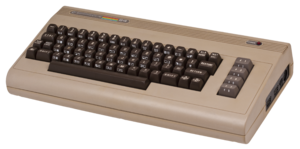[contextly_auto_sidebar id=”eJnmz4EFyiZtMYvvDKNPqiDekKwUDUR1″]
DIDN’T we hear about how great it was going to be? Those early days, when we were told how funky and non-commercial and liberating the Web was going to be, now seem like ancient history. One writer who believed in the promise of the Internet in the early days has come to see what a much more complex issue the digital revolution would be.
In a farewell piece for Salon, Andrew Leonard writes about his early crush on digital technology and  “How I switched sides in the technology wars.” As Leonard — who I will miss from the pages of the online magazine — writes:
“How I switched sides in the technology wars.” As Leonard — who I will miss from the pages of the online magazine — writes:
Where once I evangelized, now I feel disposed to caution. Where once I gleefully trumpeted the way everything was going to change and everybody better get on board the train before they were run over on the tracks, now I find myself wondering when all this change is going to translate into a truly better world, one with greater social justice, a better deal, instead of a raw deal, for labor, and less income inequality, rather than more. And where once I was fascinated and seduced by geek culture, now I am repelled by Silicon Valley arrogance and hubris.
My only serious complaint about this piece is that I wish it were significantly longer — I’d like to see the personal transformation, as well as the morphing of Silicon Valley, fleshed out more fully. Maybe he’ll do that elsewhere.
My interest in the Internet is mostly regarding what it’s done to the creative class. In any case, this short essay is well worth reading and pondering.

Thanks for the link. It does seem like we brought a cuddly little kitten home and it grew up to be a man-eating tiger.
For musicians, it has had the interesting effect of democratizing music and musicians to such an extent that the choices for listeners are astoundingly large. This has destroyed the financial model for musicians that has been in place since the mass production of vinyl records and the broadcasting of music on radio. But, the interesting thing is that musicians now have to make money the way they did before electricity was invented; by live performances. I think this was unexpected. Sculptor Mark Edwards Adams has had some great insights in his blog regarding this new world for the creative class.
I grew up in Silicon Valley (learned to code at age 11) and I’m skipping my HS reunion this week b/c the place makes me so sad now.
I’m on both sides of the Gutenberg moment and I’m glad that more people are taking a step back to reflect on what we have wrought and if this is really where we want to go.
I’ve moved to Boulder for an IT/data/education job at one of the places that invented supercomputing. We’re thinking of how to teach computational thinking to a new generation, in a more holistic way than just crunching lots of numbers really fast, or monetizing data and getting out as fast as you can. Slow computing on super-fast computers?